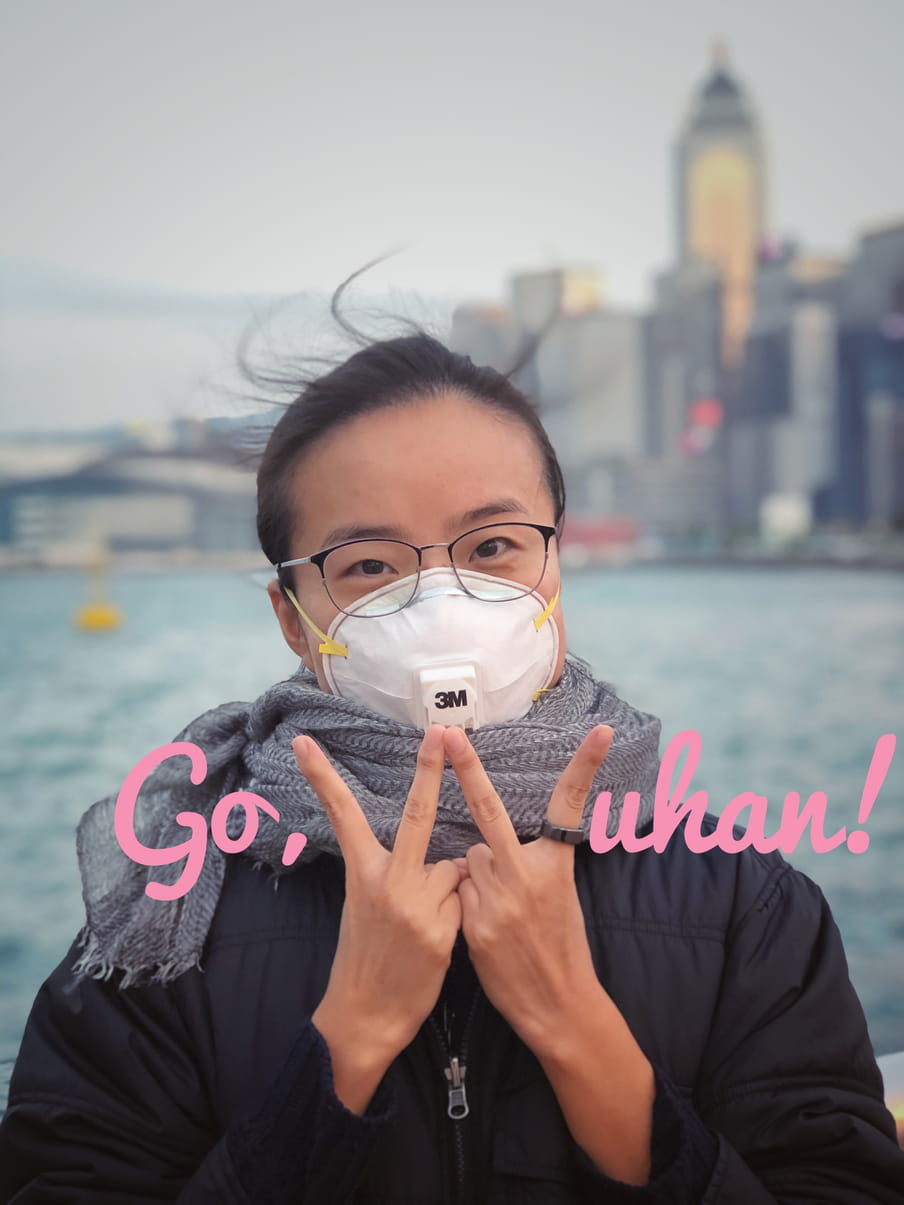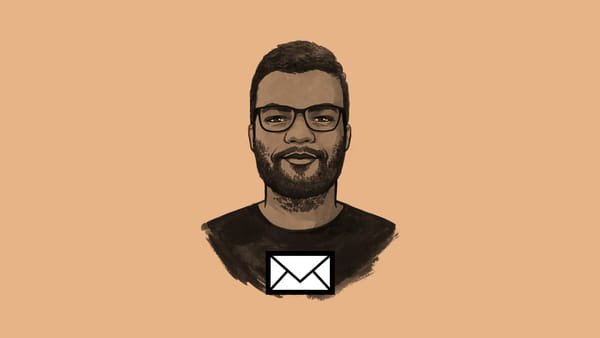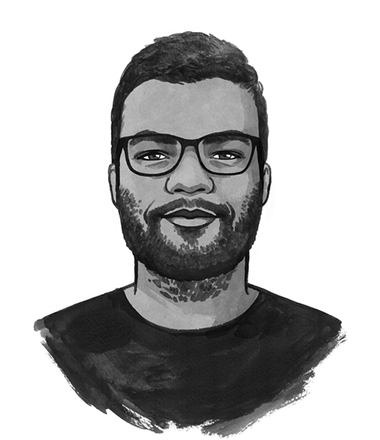Hi,
Disasters and crises bring out the best in most people , as my colleague Rutger Bregman recently wrote, but unfortunately there are always exceptions to this rule.
So even as the world comes together to take on the novel coronavirus, something far more dangerous than the virus itself is stalking our streets. Hate and prejudice. Racism and xenophobia. Ignorance and stigma.
The Vietnamese curator An Nguyen had her invitation to a UK art fair revoked because "fairly or not, Asians are being seen as carriers of virus".
A Singaporean student, Jonathan Mok, was assaulted in London after he protested racist comments connecting him to the virus.
Thai American Jiraprapasuke faced a racist tirade in the Los Angeles subway from a man who mistook him for Chinese, with insults including: "Every disease has ever [come] from China, homie. Everything comes from China because they’re f****** disgusting."
I was drowning in these despairing stories when I discovered Yuli Yang. And she made me feel like we had hope yet.
Fighting stigma with a hashtag
Perhaps the one place on Earth where the question of stigma is the most urgent is Wuhan, the Chinese city where COVID-19 originated. According to one report, Wuhaners have become outcasts in their own country.
On 3 February, Yuli, a journalist from Wuhan who was then based in Hong Kong, took to Twitter to change the narrative.
"Right now, all my close family is under lock-down back in my hometown, at the epicenter of this epidemic. I understand and support the physical measures that airlines, governments and institutions choose to put in place for control and prevention. But at the same time, I wish to invite you all not to build up walls between our hearts," Yuli wrote.
The world can only survive this crisis if China pulls through it, she added. "And China can only pull through when Wuhan heals."
In her next few tweets, she reminisced about her hometown’s delicious "hot dry noodles", the "extremely Instagrammable!" lotuses in its many lakes, the tennis superstar Li Na who’s also from the city, and Wuhan’s folk legends.
This wasn’t Wuhan the deathtrap, not even Wuhan the muscular symbol of China’s industrial ambitions. This was a city of people just like us, who woke up one day and found themselves in a nightmare.

Yuli’s thread, lilting and aching with love for her hometown and its people, had received 5,500 retweets and 16,000 likes at last count. But she didn’t stop here. Following an emotional phone conversation with her mother, she invited people from all over the world to share their messages of solidarity for Wuhaners in the form of a giant "digital get well soon" card.
Over an email interview, Yuli told me the #GoWuhan posts, which she translated and published on the popular Chinese platform Weibo, have been viewed 2.9 million times in the past few weeks. "On 7 February, a woman in Wuhan reposted our post with the comment, ‘I am in Wuhan. Go, Wuhan! Let’s get through the next two weeks together. Thank you to such sincere and warm encouragement from friends all over the world.’"
Another woman said "she cried when she read a #GoWuhan message from a man in Spain, in which there was a mention of almond blossom in the village".
I find Yuli’s story beautiful because it shows that the same platforms that created so much of the apocalyptic messaging around the coronavirus – the internet and social media – can also be used to deliver a potent antidote against it. Below are edited excerpts from our conversation:
Wuhan, then and now
Yuli: The city that I grew up in and today’s Wuhan are two different worlds. The city was (and still is) extremely hot in the summer. Temperature often rose to 40C(104F) during the day. No one had air conditioning units at home. Even small standing electric fans were items of luxury. No one owned cars, and buses stopped running soon after sunset. At night, you essentially had massive roads with no [traffic] on them. But no, this does not mean nightly tranquility. It was quite the opposite.
Around sunset, women came out of their small homes to the boulevards, carrying large buckets of water. They poured the water on to a patch of land right in the middle of the boulevard to cool it down (and to mark her territory!). Then their men would [bring out] large bamboo beds from their small homes and place them in their respective water patches on the road. And before you blinked, empty roads turned into rivers of beds (or packed nightly camping sites, whichever is easier for you to imagine!), with entire families sleeping on them.
Then as the sun rose, and before the first bus swept the roads, the families and their beds vanished into their overheated small homes again.
Today, those same roads are filled with cars night and day, and the homes are equipped with ACs and fans. What has not changed is people’s instinctive desire to seek and provide the most comfortable lives for their families, no matter the circumstances.
The #GoWuhan campaign
Yuli: Before I put out the initial post about Wuhan, I was ready to embrace love as well as hate. To my complete surprise, 99%+ of the feedback was loving, supportive and compassionate. For me what’s important is not the exact percentage of people out there who are compassionate about Wuhan, but the mere fact that they do exist. That, I believe, is important for people in Wuhan to know.
When you consider the effect of depression on one’s immune system, you can easily [argue] for the opposite case, i.e., a happier mind can be beneficial to one’s immune system. It might not bring about immediate sea change, but even the smallest change for the better is an improvement nonetheless.
In a way, [sharing the messages of love and solidarity] is similar to sending in aid supplies from the outside world. When you send a box of masks from say Kuala Lumpur to Wuhan, you need to deal with the airlines, the customs clearances, etc. In the case of #GoWuhan, we serve as that hurdle-breaker for your emotional first-aid supplies and donations, by translating them and sharing them at places accessible to Wuhaners.
#GoWuhan currently has 30 people, myself included. Some of them are my high school friends, who like me grew up in Wuhan and are currently living and working away from our hometown. Some of them are strangers-turned-friends who kindly volunteered to help out.
Impact of the campaign on Wuhaners
Yuli: To be completely transparent, it is still hard to gauge #GoWuhan’s impact on the people in Wuhan. When I ask myself the same question, I [imagine] the challenges in quantifying the impact of a hug on a sad person, and then I tell myself to [continue doing what I am].
Write to me and tell me what you are taking away from this story. I know what I am taking away: stigma doesn’t stand a chance if we all decide to #BeLikeYuli.
Stay safe, everyone.
 Would you like this newsletter sent straight to your inbox?
Subscribe to my weekly newsletter where I dismantle myths around Sanity, discuss the best ideas from our members, and share updates on my journalism.
Would you like this newsletter sent straight to your inbox?
Subscribe to my weekly newsletter where I dismantle myths around Sanity, discuss the best ideas from our members, and share updates on my journalism.

